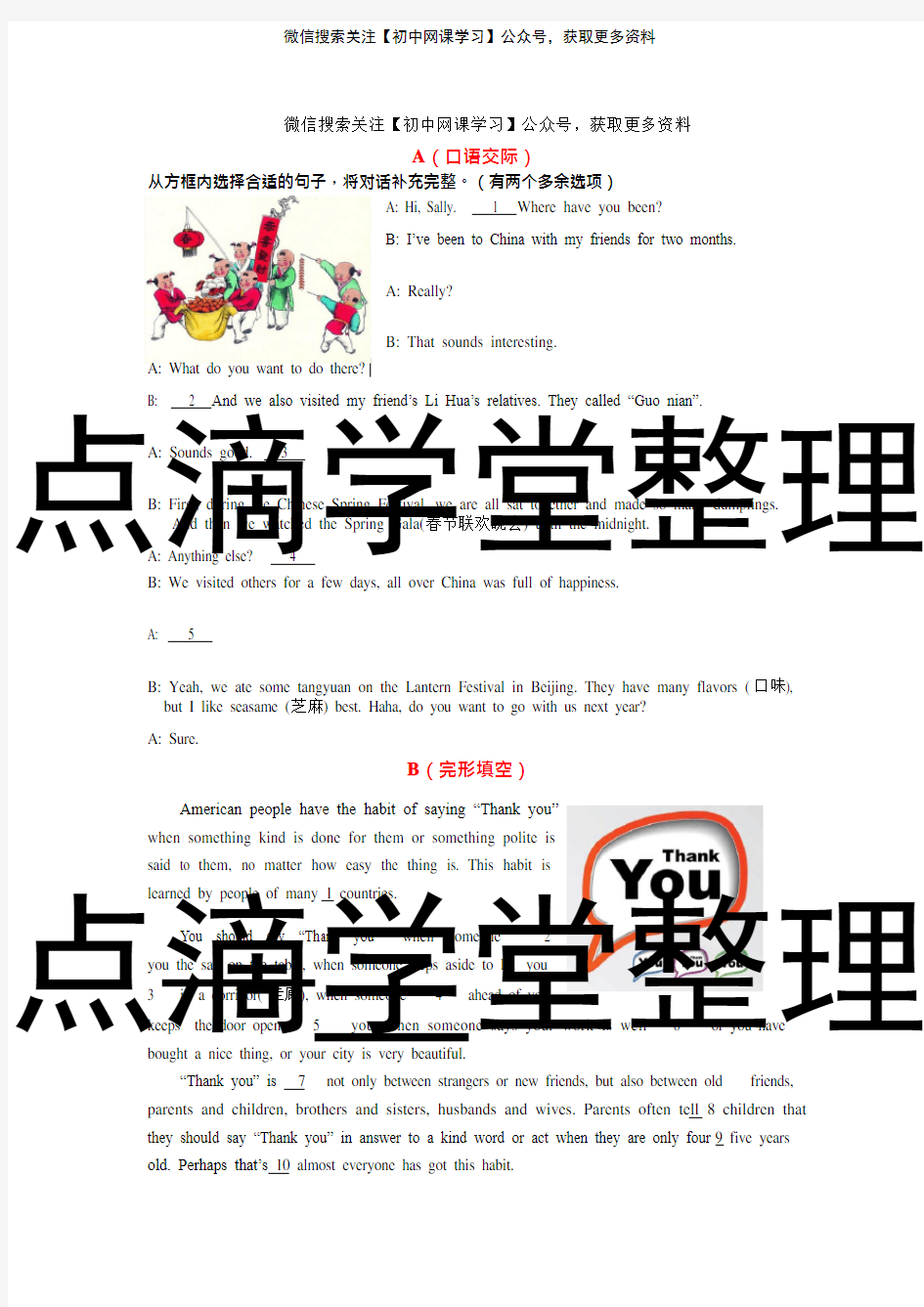初二下册英语阅读2(2)

微信搜索关注【初中网课学习】公众号,获取更多资料
点滴学堂整理点滴学堂整理
微信搜索关注【初中网课学习】公众号,获取更多资料
A(口语交际)
从方框内选择合适的句子,将对话补充完整。(有两个多余选项)
A: Hi, Sally. 1 Where have you been?
B: I’ve been to China with my friends for two months.
A: Really?
B: That sounds interesting.
A: What do you want to do there?
B: 2 And we also visited my friend’s Li Hua’s relatives. They called “Guo nian”.
A: Sounds good. 3
B: First, during the Chinese Spring Festival, we are all sat together and made so many dumplings.
And then we watched the Spring Gala(春节联欢晚会) until the midnight.
A: Anything else? 4
B: We visited others for a few days, all over China was full of happiness.
A: 5
B: Yeah, we ate some tangyuan on the Lantern Festival in Beijing. They have many flavors (口味), but I like seasame (芝麻) best. Haha, do you want to go with us next year?
A: Sure.
B(完形填空)
American people have the habit of saying “Thank you”
when something kind is done for them or something polite is
said to them, no matter how easy the thing is. This habit is
learned by people of many 1 countries.
You should say “Thank you” when someone 2
you the salt on the table, when someone steps aside to let you
3 in a corridor( 走廊), when someone
4 ahead of you
keeps the door open 5 you, when someone says your work is well 6 or you have bought a nice thing, or your city is very beautiful.
“Thank you” is 7 not only between strangers or new friends, but also between old friends, parents and children, brothers and sisters, husbands and wives. Parents often tell 8 children that they should say “Thank you” in answer to a kind word or act when they are only four 9 five years old. Perhaps that’s 10 almost everyone has got this habit.
